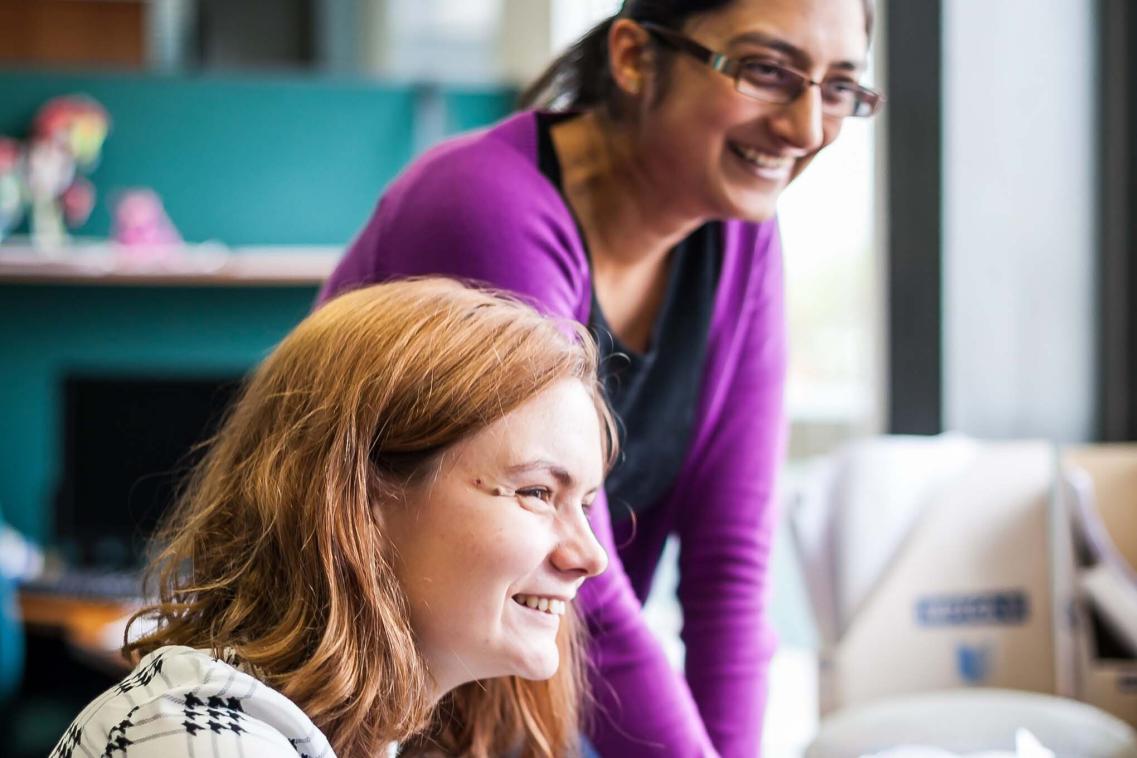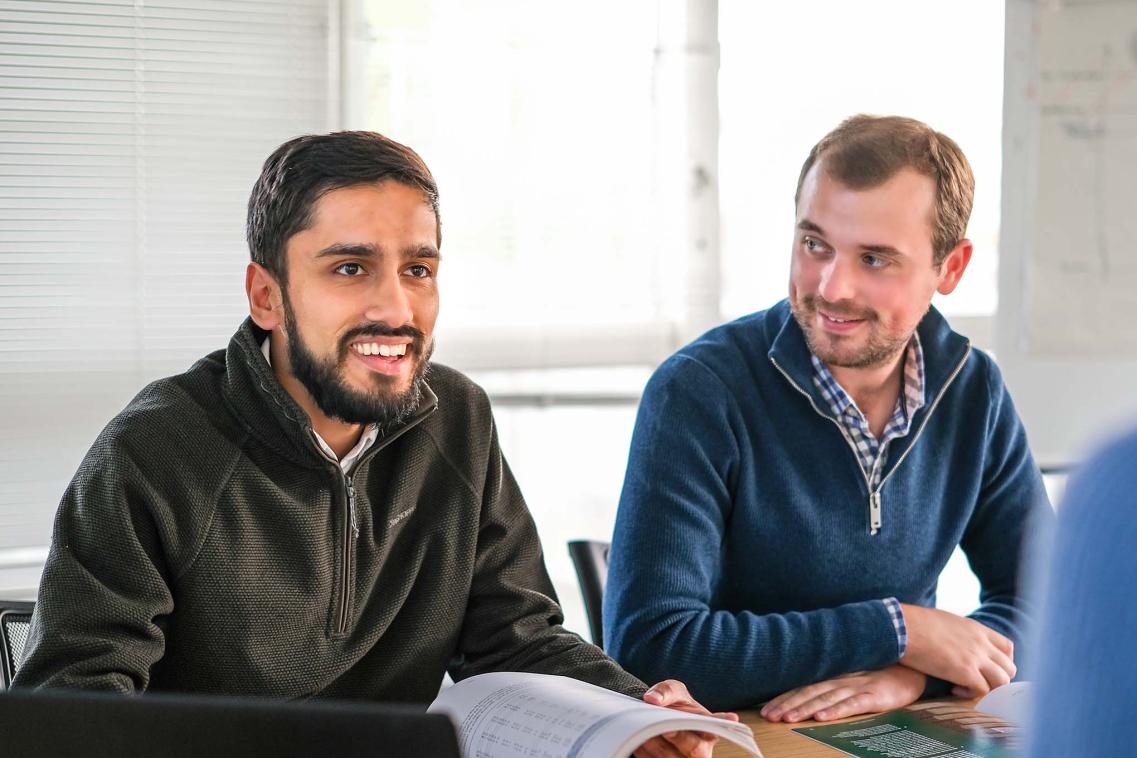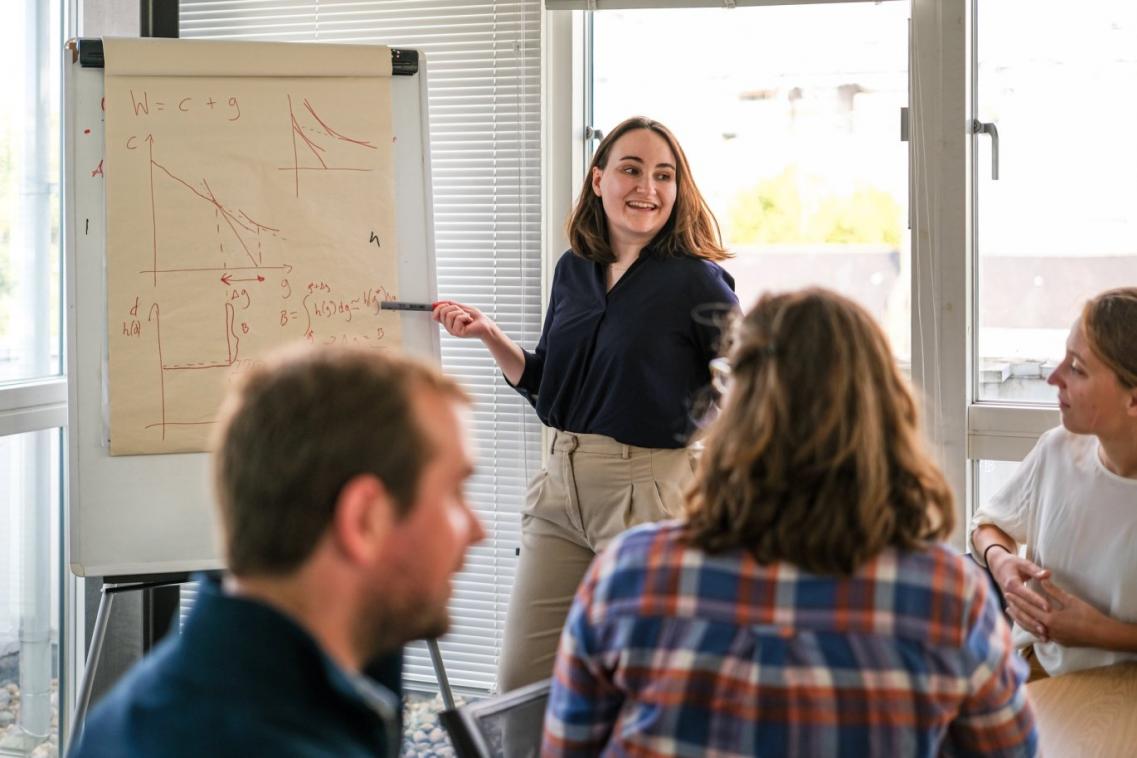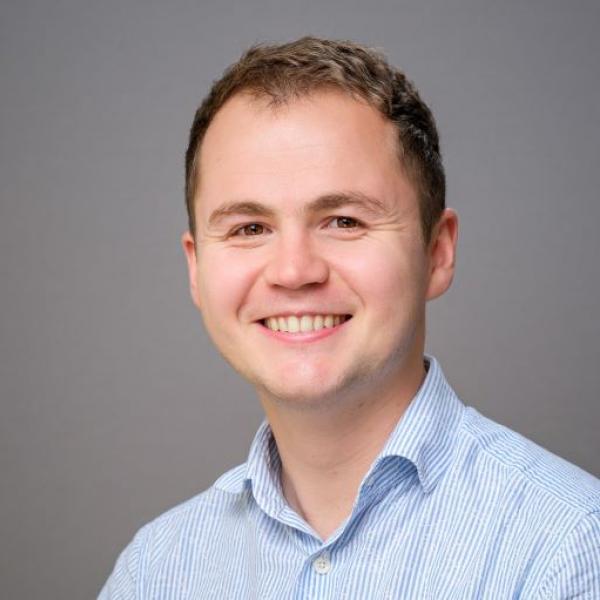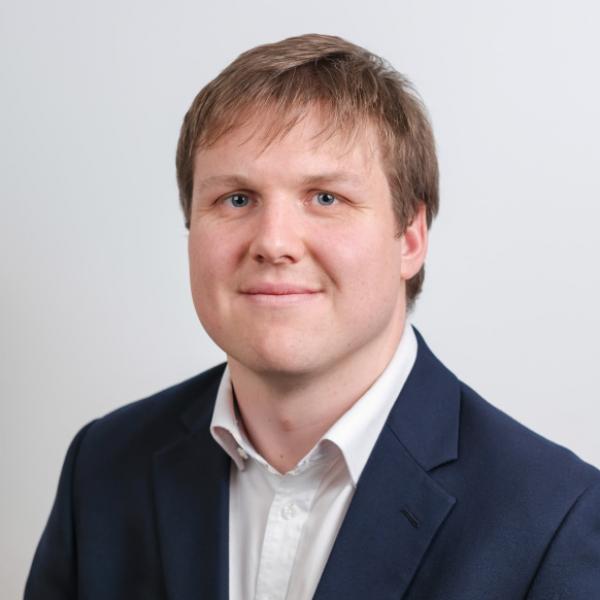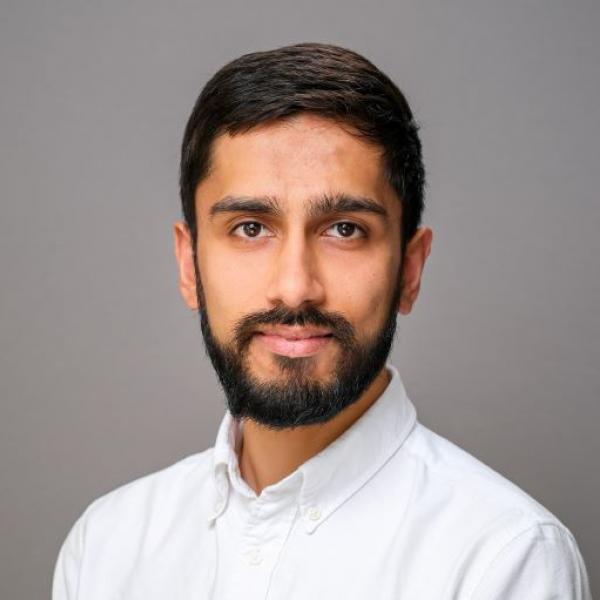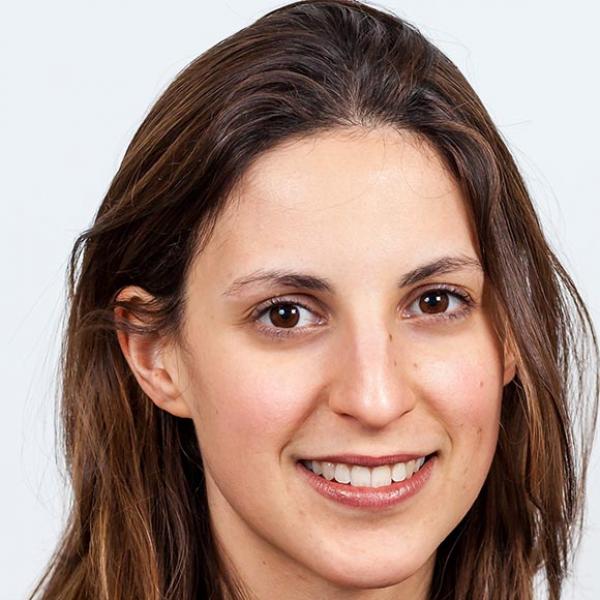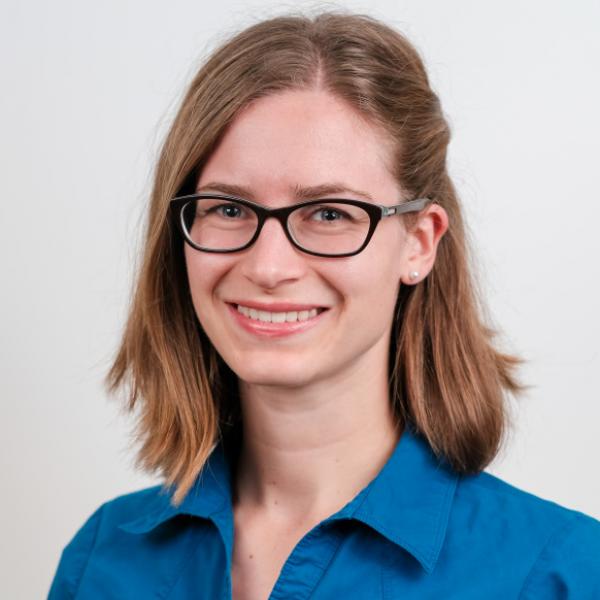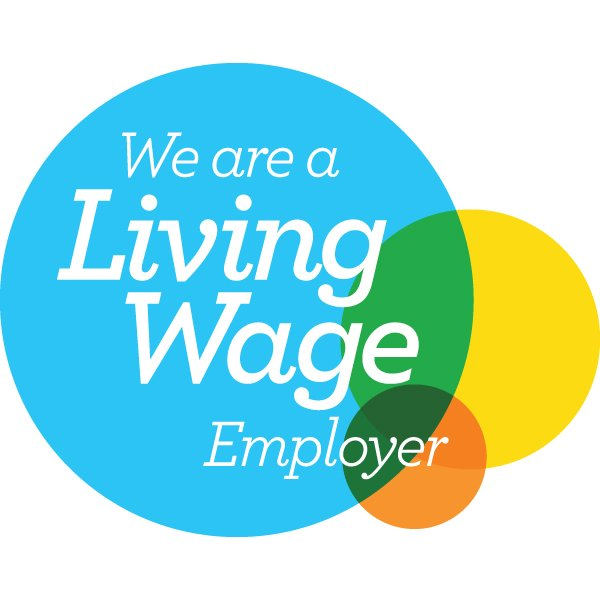What we are looking for
In compiling our shortlist, we look particularly for excellent academic results and for an interest in and understanding of how economic theory can be used to improve public policy. Research Economists carry out research to a high academic standard, with an awareness of the policy context, and communicate the results to a wide audience.
Successful applicants to a Research Economist position will have gained or be expected to gain at least a very good 2:1 on an economics-related undergraduate degree course, or have or expect to have a relevant master’s degree. Candidates with relevant work experience in the public, private or not-for-profit sector and those who have or expect to have a strong PhD, who are interested in doing general microeconomic research, may also apply. Many staff have previous computing, econometric or theoretical skills; these are not essential, although strong numeracy and the willingness to learn are.
You will be expected to be able and willing to present your work to a range of audiences, including the academic and broad public policy communities. This may include addressing conferences and seminars, writing for newspapers, and appearing on radio or television. Relevant training – for instance, in broadcasting skills – will be provided.
Diversity
We strive to foster a respectful and inclusive environment, in which people from all backgrounds feel welcome. Our approach to flexible working has helped to ensure that we employ a balance of men and women at all levels of seniority. Staff of many nationalities work together at the IFS, along with a range of visiting academics from the UK and other countries.
Our selection decisions are made on the basis of potential to carry out and communicate excellent research, regardless of race, gender, sexuality, religion or social class.
When short-listing and interviewing we are looking for potential and enthusiasm for economics, an ability to think using an economic tool kit and to communicate this clearly: the process is designed to draw these out and to identify the positive attributes that a candidate has, rather than to catch them out with trick questions or find out what they don’t know.
Application process
We ask candidates to fill in an application form, so that short-listers can compare like with like when looking at information about applicants. As part of our efforts to increase diversity among our staff, IFS uses BeApplied, a job application platform designed to encourage applicants from all backgrounds and to decrease bias in the hiring process.
As well as information about academic performance, we ask candidates to answer the following questions:
- What is it about IFS and the type of research we do that makes you want to work here?
- A question about economics, to be answered in no more than 250 words. We do not expect you to include empirical evidence, nor to research the specific details of any particular policy; we are more interested in your ability to discuss the relevant economic issues and potential effects of policy in principle. As IFS is a politically independent organisation, we do not include political opinions in our work. We are looking for a piece of writing aimed at someone who is well-informed, but not a professional economist - so do not use equations or economic jargon.
These two questions will be read and scored anonymously, separately from the rest of your application.
You will be asked to provide two referees. These should usually be academic referees, unless you are not a recent graduate and have relevant work experience. We will contact all academic referees for short-listed candidates.
Aptitude tests
After completing the application form, we ask candidates to take two short online aptitude tests. This is used primarily to give us extra information about applicants and allow candidates to demonstrate their potential, in particular if their academic background does not reflect their abilities. It will not be used automatically to screen out candidates with lower scores.
Process for short-listed candidates
We aim to shortlist around 20 candidates, from roughly 300 applicants. When we contact short-listed candidates, we will first ask them to prepare a short written answer to a set question, to be sent back by email a few days before the interview, and send us their CV.
The videos below contain examples of the sorts of questions we might ask and examples of the sort of answers we're looking for. Candidates should note that these are merely illustrations. Interview questions may be of a different style (e.g. more technical in nature), and successful answers could be different from those in the videos (e.g. a successful candidate might use more or less technical economic 'jargon' in their answer). The key thing we're trying to assess is a candidate's ability to think through an economic problem in an intelligent way and to explain their reasoning, and these videos are intended to give candidates some sense of what to expect.
First interview
This answer will provide the initial basis for discussion in the first interview. Part of the reason we do this is to help candidates relax, as they will be familiar with the material for the initial discussion. Another reason is to allow us to assess your written as well as spoken communication skills.
Each candidate will attend two consecutive interviews on the same day, where the discussion will focus on applying economic theory to policy-relevant questions. The interview panels are made up of three people per panel. These include senior managers and team leaders, most of whom have a space in their team for a new economist.
Candidates will be asked to use economics to analyse a topical policy question, such as the impact of tax changes or government policies on education. Up to a further five topics will then be covered, each focusing on a different aspect of the Institute’s research. We select candidates based on the potential we believe they have to think in an intelligent way about economics and its application to policy questions. Each interviewer will privately note down a score after every question to indicate how well they think candidate answered the question. The scores are entered into a spreadsheet at the end to allow the panels to reach a fair assessment.
Second interview
A smaller number of candidates (about 10) will then be called back for a second interview. This time, there will be one interview with a panel of six people. Candidates are asked to prepare a presentation in advance which they give at the start of the interview. We then follow up with a set of questions about the issues raised in the presentation. We then have another question or two similar in nature to that asked at the first stage.
Interview expenses
We will pay all reasonable travel – and accommodation, where needed – expenses for candidates coming from with the UK. For the first interview, we carry out interviews via Zoom for all candidates. We will typically cover expenses for any candidates coming to the second interview (regardless of where they are located in the world), as we would prefer to carry these out face-to-face rather than remotely.
Job offers
We expect to be able to make job offers during the week following the interview.
We will give feedback on their application and interview performance to all candidates who came to an interview and have not been offered a job.
Candidates from outside the EU can apply, and the role is eligible for a Skilled Worker visa. Any job offer will remain conditional until the visa application to the Home Office is successful.
